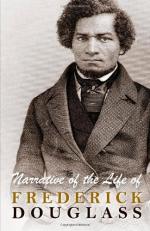|
This section contains 1,722 words (approx. 6 pages at 300 words per page) |

|
SOURCE: "Narratives of Fugitive Slaves," in Critical Essays on Frederick Douglass, edited by William L. Andrews, G. K. Hall & Co., 1991, pp. 24-7.
In the following essay, originally published in 1849, Peabody favorably assesses Douglass's Narrative as among the most remarkable productions of the age, but observes that the author's mode of speech is prone to "violent and unqualified statements" that could "diminish his power as an advocate of the antislavery cause."
America has the mournful honor of adding a new department to the literature of civilization,—the autobiographies of escaped slaves. . . . The subjects of two of these narratives, Frederick Douglass and Josiah Henson, we have known personally, and, apart from the internal evidence of truth which their stories afford, we have every reason to put confidence in them as men of veracity. The authors of the remaining accounts are, for anything we know to the contrary, equally trustworthy. We...
|
This section contains 1,722 words (approx. 6 pages at 300 words per page) |

|


